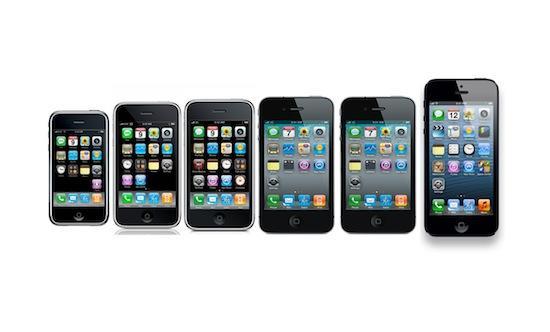
Google's Nexus devices have attacked the affordable gadget market by storm. From the Nexus 4, Nexus 7, and Nexus 10, you're likely to find a device at the right screen size, or whatever it is that you desire. But rumors have starting circling of successors to each Nexus device, and while I'm excited to hear about them, I've been encapsulated by the conundrum Google has managed to get itself into.
Before I continue, a gadget's name is easy to disregard as irrelevant and unimportant. Yes, a device's name has very little relation to its performance or value. Likewise, each and every time you refer to said gadget, I find myself more annoyed by the irrelevance associated by the name itself.
I've mocked smartphone naming conventions once before. I broke it down by OEM and made it seem like each was simply hopeless, but that's not the case. It's becoming apparent that such irrelevant names are being attributed to devices on purpose, and I demand an explanation.
In the case of the Nexus 7 and Nexus 10, the denominators each differentiate on the factor of display size. Yes, the specifications of each are clearly different as well, but the main difference between the two is in screen size, and it makes the most sense that Google admits to this. Yet the Nexus 4 never had a 4-inch display despite it being the fourth iteration of a Nexus smartphone. Does that mean its successor is a Nexus 4 II, or a Nexus with a numeral referencing the size of the display (which would further highlight the Nexus 4 as an outlier in Google's naming scheme). It all seems a bit sloppy and overlooked.
Google's Nexus devices are just one example of a brand which has yet to fully understand their portfolio of devices. While each and every Nexus device is aimed at a certain type of buyer, they also make you wonder why they were named as they were.
Smartphone naming conventions easily take a backseat to the hardware and software specifications of each respective device. I understand smartphones need to have a certain set of features to qualify them as "smart" at the end of the day, but that doesn't mean the marketing department shouldn't be on vacation. I feel each device needs to make sense in the sequence of devices it follows.
Yet I'm no Apple store genius, and I understand Apple's naming conventions. Each device iteration (less the iPad) adds a numeral or an "s" to differentiate it from its predecessor. It makes sense no matter how much you try and argue it. So, why have smartphone naming conventions begun to take a backseat to hardware and software?
As far as I'm concerned, a smartphone's name is just like your significant other. You call for it when you're on the poop shoot. It's a necessity when you're making a Panini if the recipe goes awry. It even manages to start arguments, distract you from them, and instigate them once again. Name one other object that can do this. Actually, don't.
The point is, smartphones come up in conversation quite frequently, and each have their own identity. I just find it hard to disregard that certain names which make very little sense (New iPad), or do not coincide with a respectable aspect of a device (devices which add the word "pro") can be taken seriously.
Cars are often given ambiguous names to reference inanimate actions (Ford Focus), numerical values based on engine attributes (BMW 335i), or just plain epic nouns (Lamborghini Aventador) to make sense of themselves. Each of these examples have a clear reason to their naming, yet smartphones are as ambiguous as Sigmund Freud's couch. Give me something to bite on, OEMs, before it becomes apparent that your Galaxy S 4 Active is aimed at buyers who are looking to drop the Cheeto's and hit the gym, instead of highlighting the device's durable attributes.